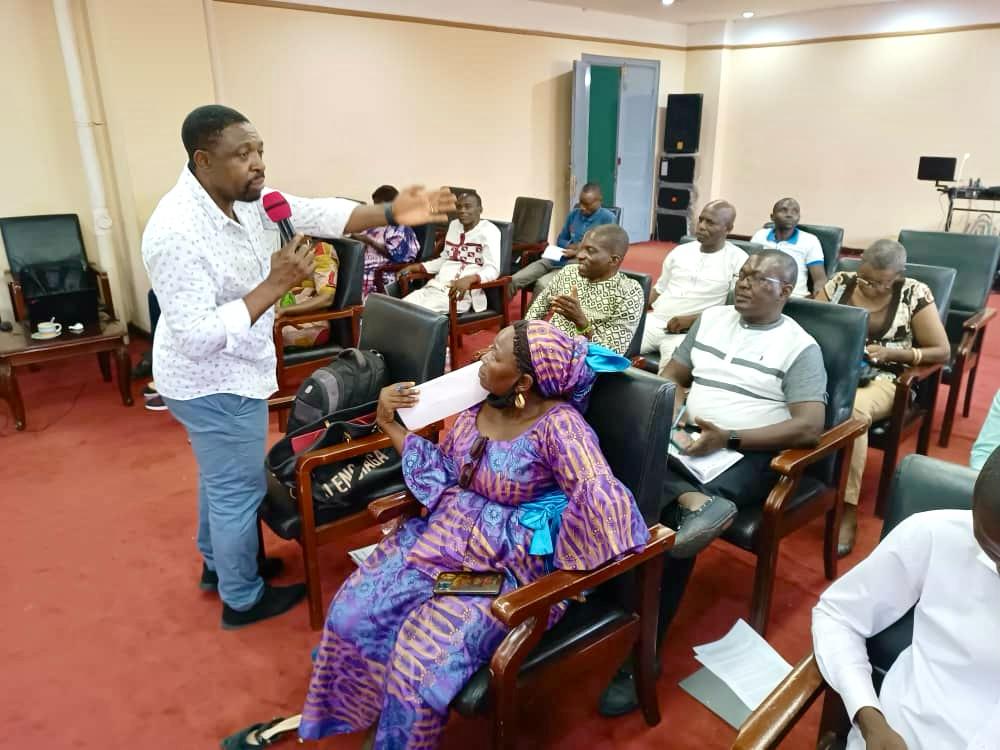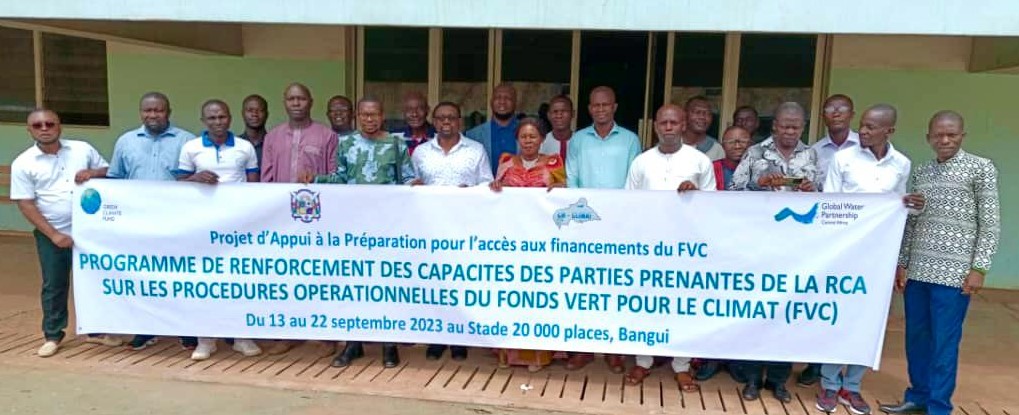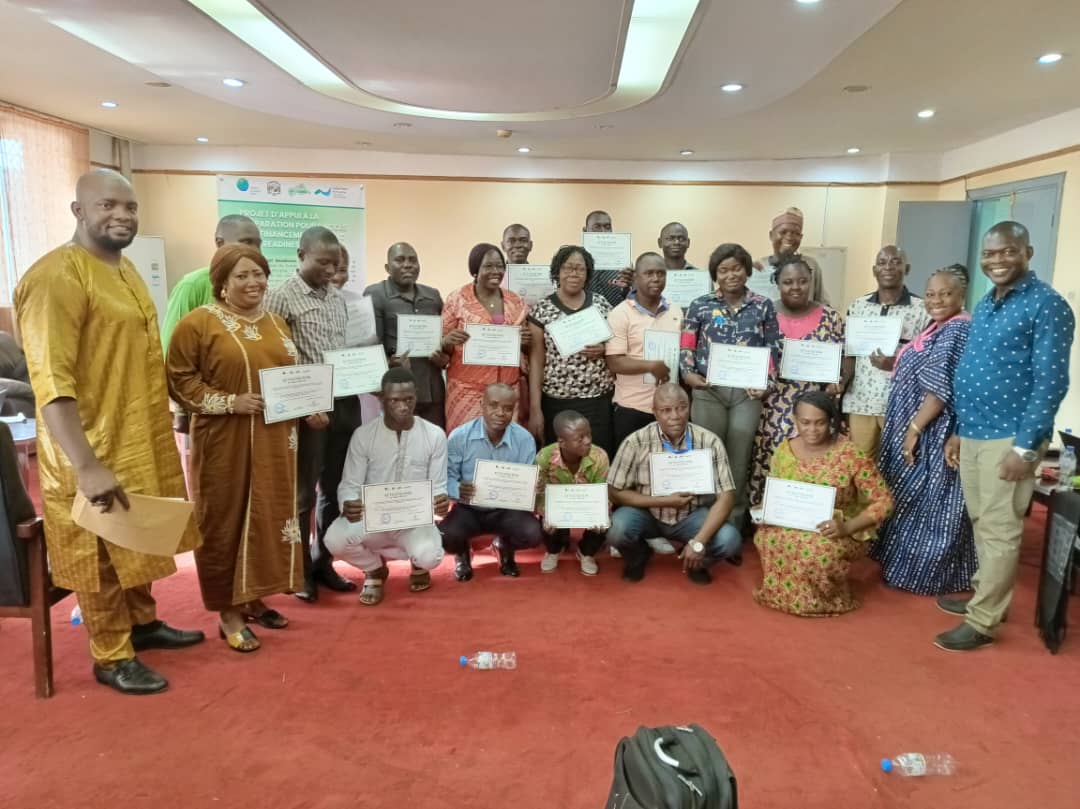Since 2022, the Central African Republic has been implementing the 2nd GCF Readiness Programme in the country with the supervision of the National Climate Coordination Unit (NDA) and GWP offices (global, regional, and country). The GCF readiness program in CAR has three main expected results, with the second being the rationale for these capacity-building workshops: Relevant national stakeholders (which may include implementing entities, civil society organizations, and the private sector) have established adequate capacities, systems, and networks to support the planning, programming, and implementation of activities financed by the Green Climate Fund.
To achieve this, a prior stakeholder mapping exercise was carried out to identify key players involved in mobilizing climate finance, with the objective of identifying participants for the GCF capacity-building training sessions. Based on the results of this study, three separate, two-day training sessions were organized on GCF procedures and initiatives financed by the GCF, with the participation of 25 government officials, 25 CSO representatives, and 20 representatives of the private sector. The content of each training was developed per stakeholder group with a specific core message and objective. This was to ensure the relevant participation of the stakeholders in GCF-funded projects vis-à-vis their scope of work.

For the government staff, the focus was on compliance with GCF procedures and encouraging frequent communication with the NDA to ensure a greater contribution to climate action. For CSOs, the training focused on lobbying aspects, with an emphasis on setting up CSO platforms with well-defined objectives in terms of intervention. This will help in the proper positioning of these actors during the development of GCF concept notes. The private sector training focused on business issues and innovation, with an emphasis on the ability to demonstrate a constant cash flow and robust organization.
The training sessions focused on five modules, namely: climate finance, introducing the Green Climate Fund, developing project proposals for the GCF, GCF requirements for gender, indigenous peoples, environmental and social safeguards, and lastly, the role of civil society and the private sector in relation to the GCF. The training methodology centered on presentations and group work sessions to deepen understanding of the training modules, identify synergy between the GCF and the stakeholder groups, and identify practical outlets through which participants can be engaged in GCF-funded initiatives within the country.

Participants appreciated the training and formulated recommendations that will enrich future similar training sessions and increase their involvement in GCF initiatives to improve climate resilience and adaptation in the Central African Republic.
About the Green Climate Fund (GCF)
The Green Climate Fund (GCF), is the main financial mechanism of the United Nations Framework Convention on Climate Change (UNFCCC). Set up at the 16th Conference of the Parties in Cancun in 2010, the objective of the GCF is to encourage a radical shift towards the adoption of sustainable development models, particularly those with low greenhouse gas (GHG) emissions and high resilience to climate change in developing countries.
